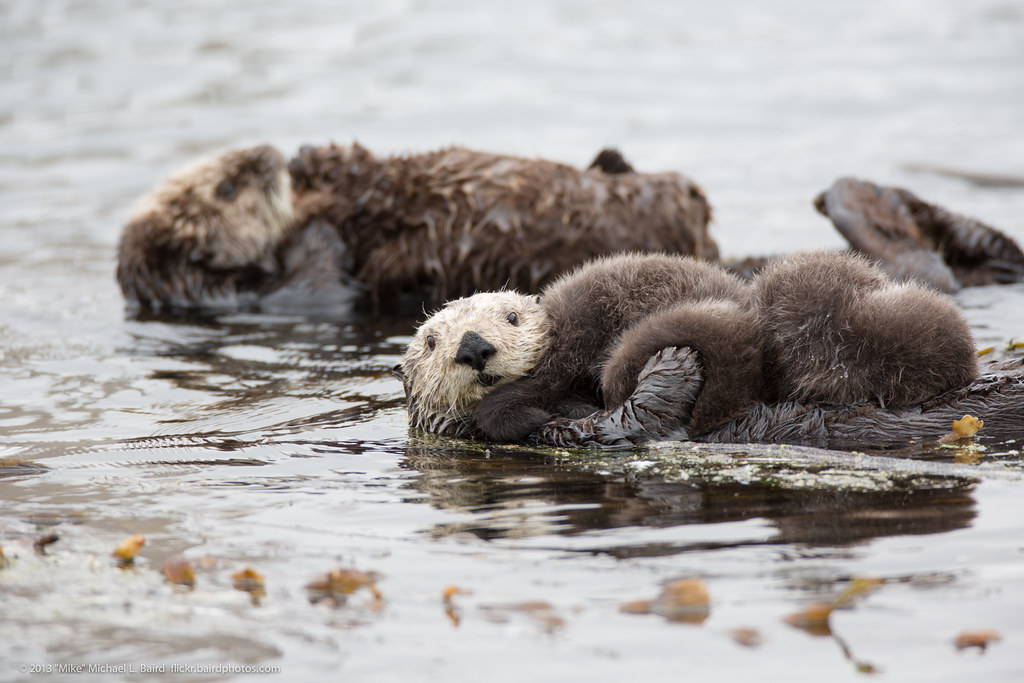
Sick of 2020 yet? We have just the thing to cheer you up: Sea Otter Week! Did you know the sea otter is the smallest marine mammal in North America? Or that sea otters don’t have any blubber to stay warm? Instead, they have the thickest coat in the animal kingdom! They also have a small flap of skin in their armpits that they store food in while they swim to the surface. They then float on their back, using their tummy as a table while they eat. They also hold hands and tie themselves to kelp while they sleep so they don’t float away with the current. C’mon, that’s just adorable!
Sea otters are recovering from near extinction but are still threatened by human activities. Otters were once hunted in great numbers for their fur until it was banned in 1911. Today, sea otters are largely threatened by man-made pollution. California’s coast, ocean, and bays have repeatedly been struck by oil spill disasters. One large tanker spill along our Central Coast could potentially result in the loss of the sea otter for good!
Additionally, chronic nutrient runoff from agricultural operations causes ocean “dead zones” and harmful algal blooms. Scientists discovered that otters were dying from these algal blooms as highly toxic freshwater algae flows into the ocean and is concentrated by the shellfish otters eat. Bacteria, pesticides, and other toxic substances also run off our streets and sidewalks, ultimately flowing into our ocean and impact the otter’s immune system.
Sea otters require thriving, healthy habitats to survive. California become a world leader in ocean protection by creating the nation’s first network of underwater parks, but our work is far from done. California needs to do more to protect the water quality in our marine protected areas. CCKA is working to prevent runoff from agricultural fields and stormwater runoff from our urban landscapes from reaching our ocean and coast, and from polluting our most biologically significant marine areas. We are also using existing Clean Water Act laws to identify the worst and most egregious water quality violations along the Central Coast, and then use our enforcement capabilities to put a stop to those violations for the benefit of the sea otter. Lastly, CCKA is working to ensure California is a leader in addressing ocean acidification along our coast. If our state does nothing to prevent ocean acidification hot spots, it could have disastrous consequences on shellfish, and other sources of food for the sea otter.
Sign up for our monthly newsletter to learn more about our work to protect the ocean and otters, or support our work directly by becoming a member of CCKA.

Executive Director Sean Bothwell leads CCKA’s initiatives to fight for swimmable, fishable, and drinkable waters for all Californians.



